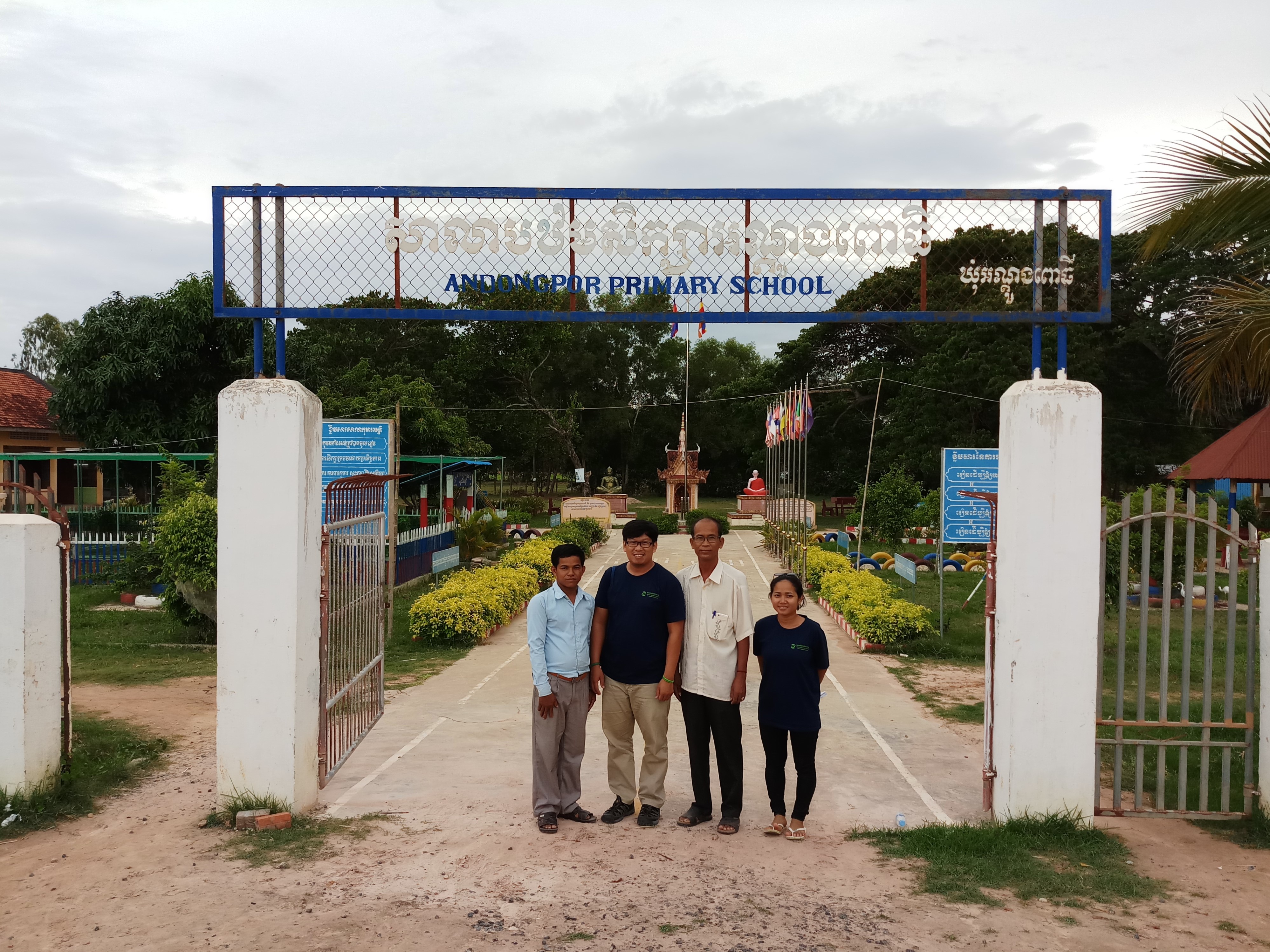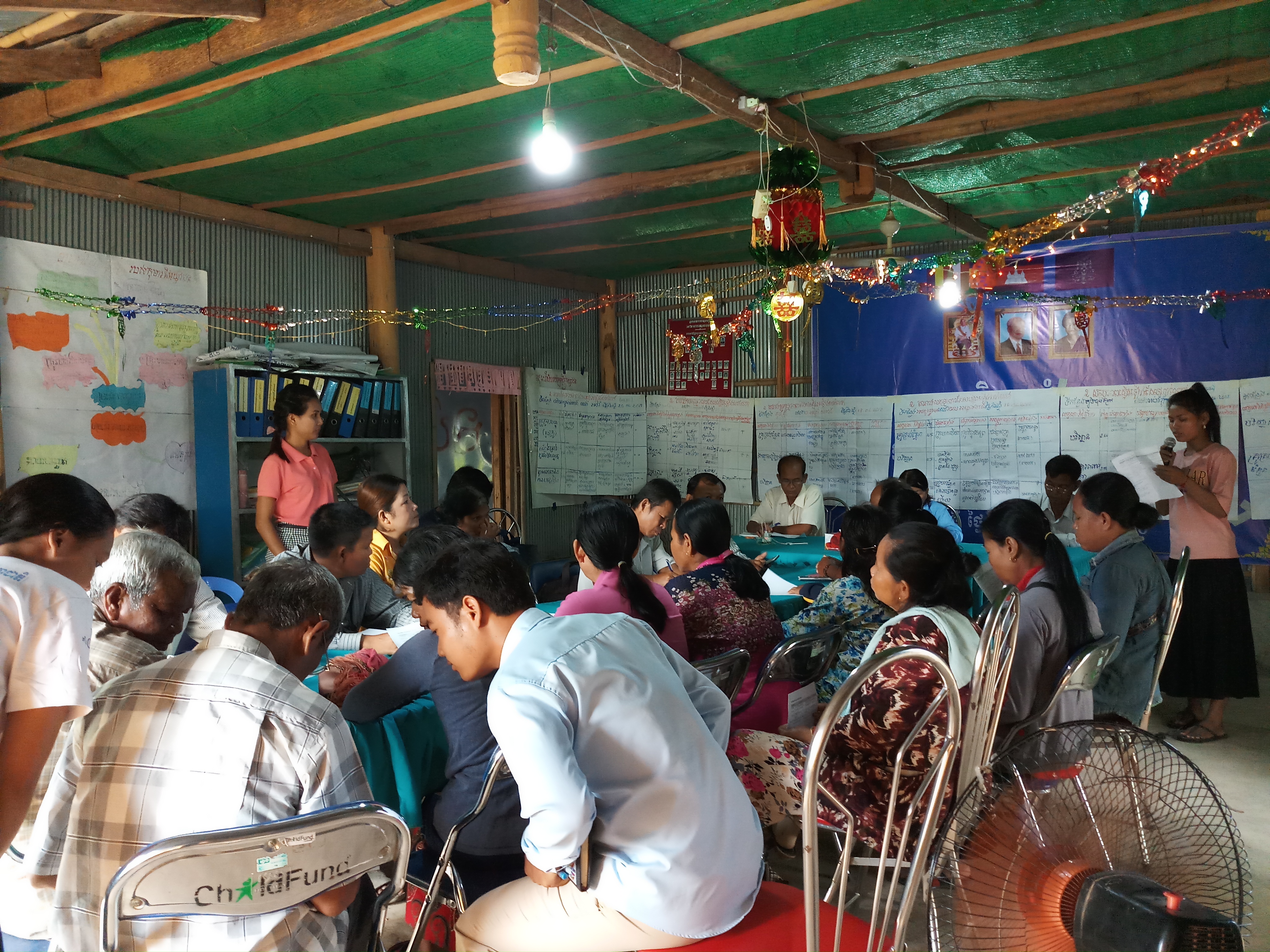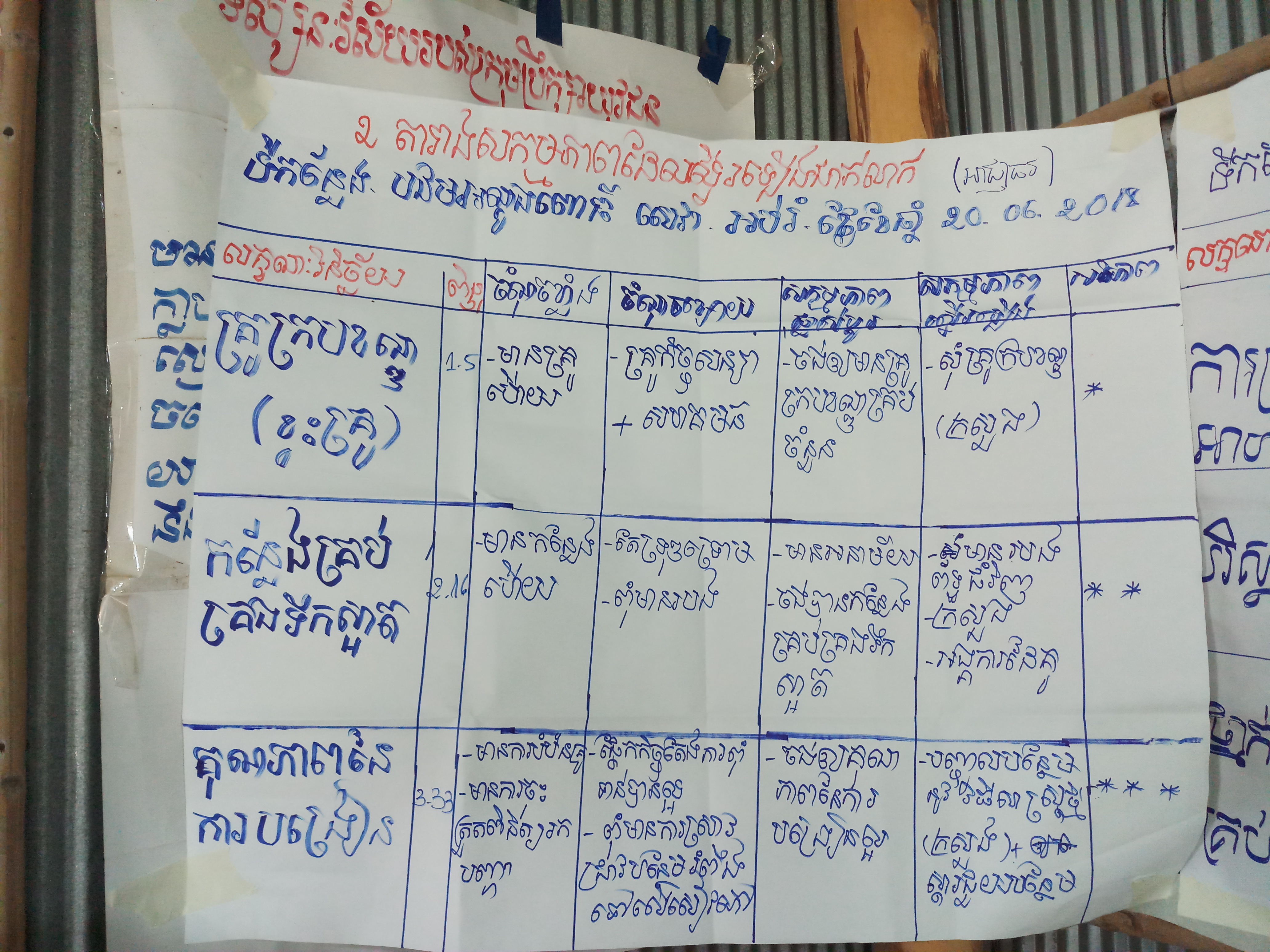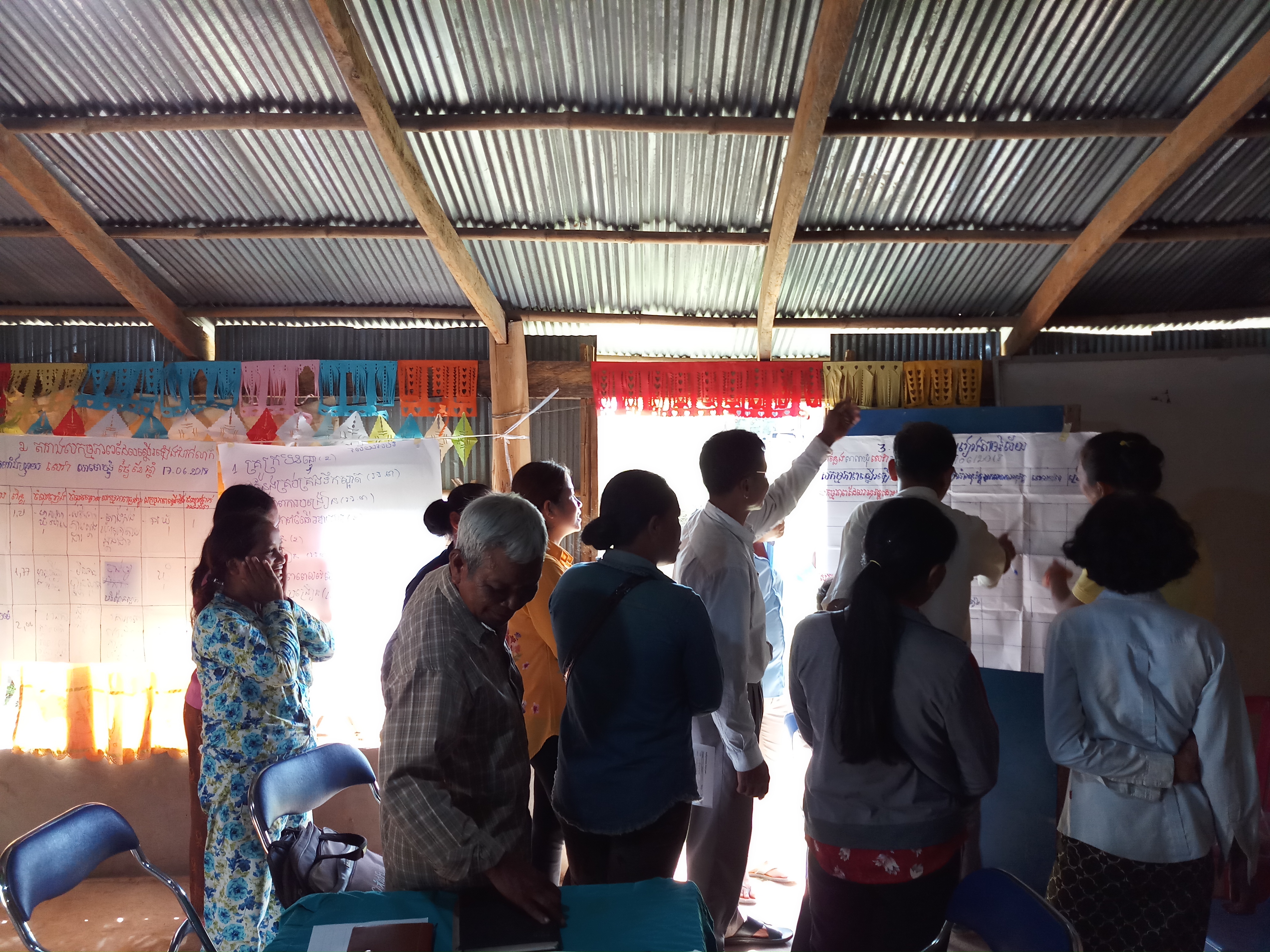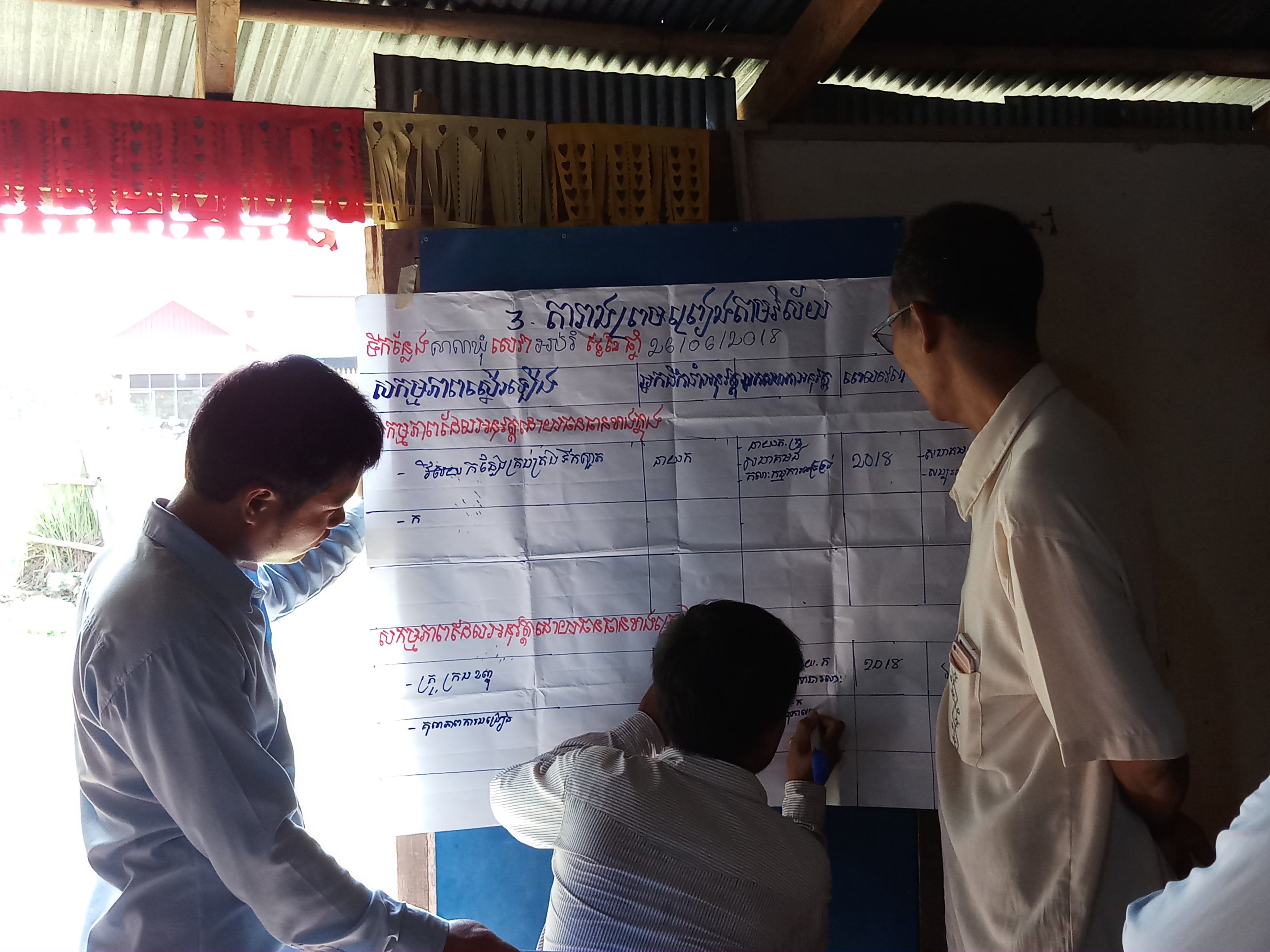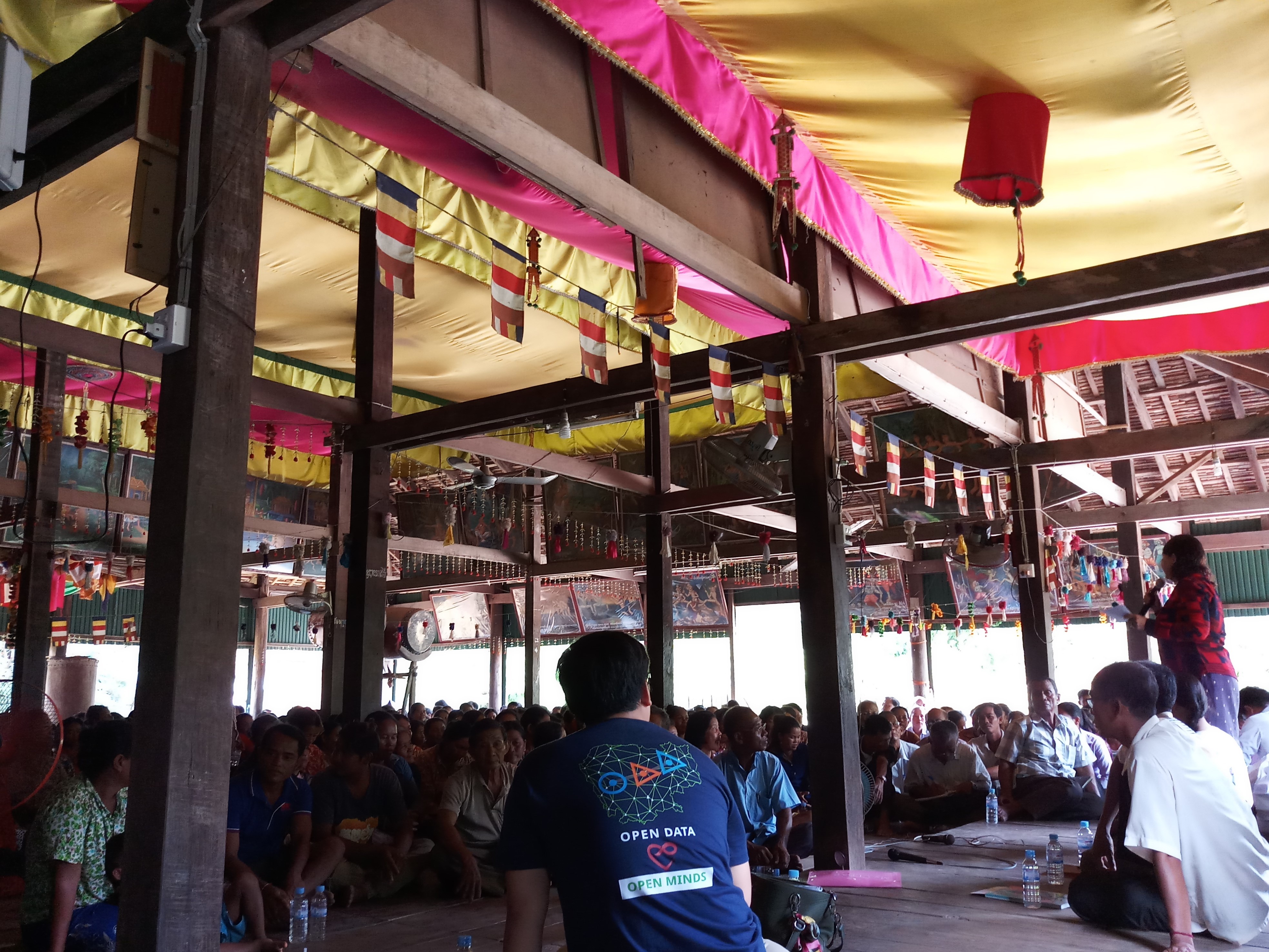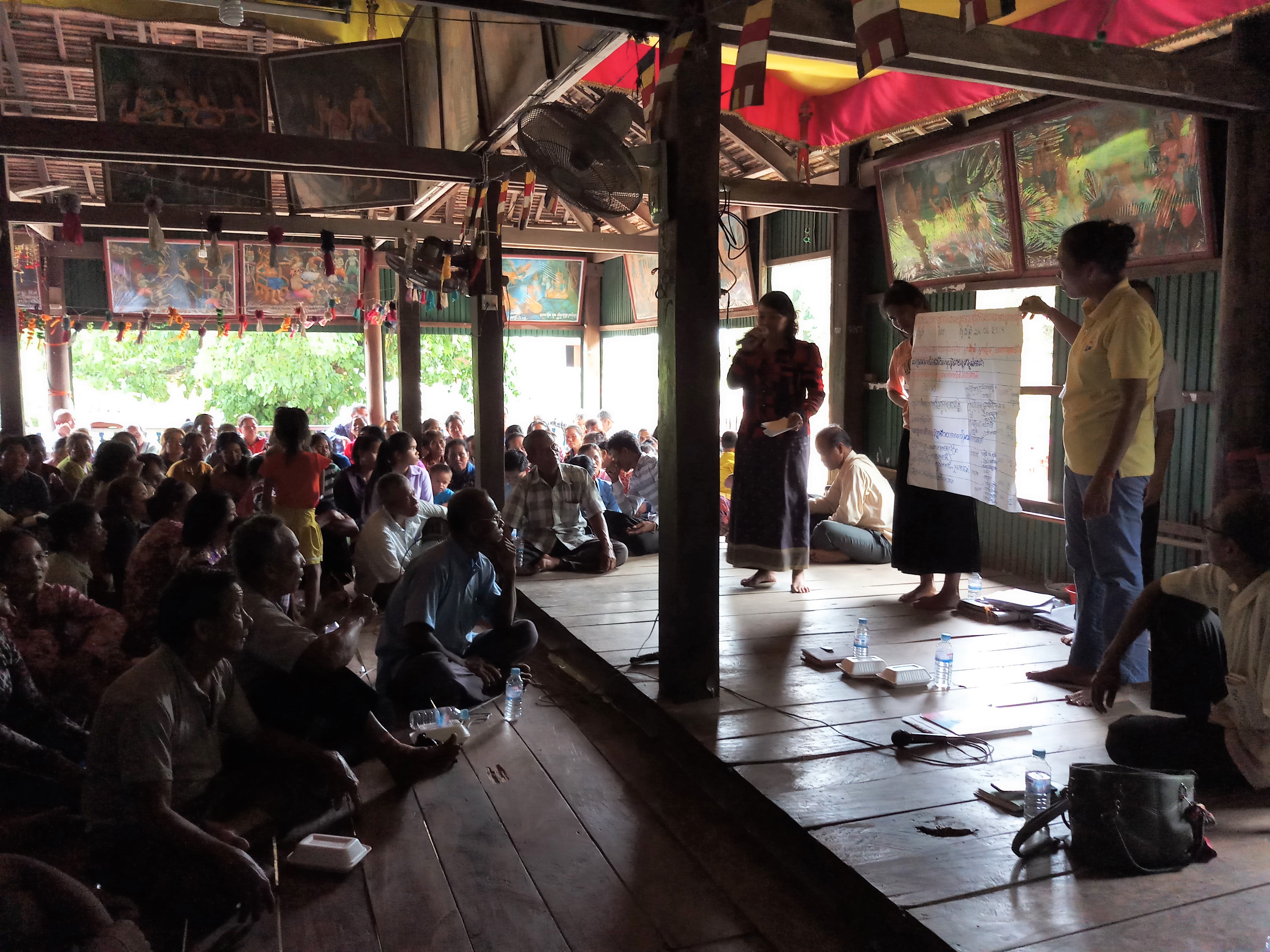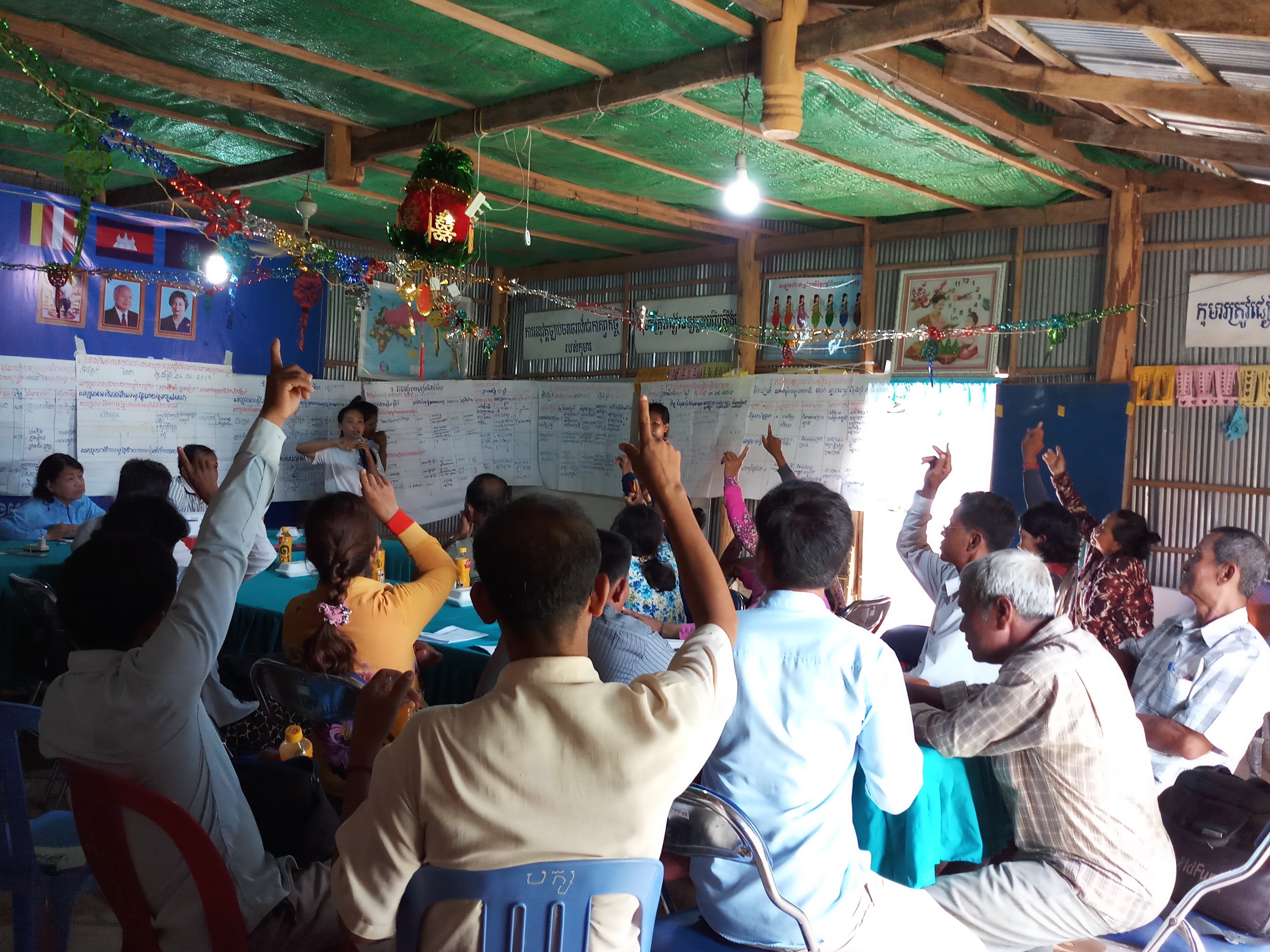ODC’s attended the process of citizen monitoring, one of the four components of the implementation of social accountability framework
The implementation of social accountability framework (I-SAF) rests on four components: i) access to information and open budgets, ii) citizen monitoring, iii) facilitation and capacity building, iv) learning and monitoring. This blogpost highlight parts of activities of second component 2: citizen monitoring, a process where citizens collectively engaged in getting information of government services in their areas and to independently monitor and assess the performance of public services providers and the services of the government. The citizen monitoring involves four other processes such as community scorecards, interface meeting, joint accountability action plans (JAAPs) and in-depth monitoring (Royal Government of Cambodia, 2013).
In the previous blog, ODC team visited the implementation of the first component, the ‘Information for Citizens (I4Cs)’ which is the beginning of the I-SAF process that supported by STAR Kampuchea. Again, on June 25 2018, Open Development Cambodia (ODC) team made another visit hosted by our project partner, STAR Kampuchea (SK) team to Andoung Pou commune, Romeas Haek district, Svay Rieng Province. SK is responsible for triggering the improvement of public service providing in areas since 2017 funded by SPIDER.
SK team together with commune accountability facilitators (CAFs) organized two meetings in the morning – interface meeting and joint accountability action plans (JAAPs) – with representative of citizens and local governments to discuss on the result of commune scorecards of two services: commune administrative and school service (education) which had been done ahead of this meeting.
On the same day in the afternoon, a JAAP dissemination workshop also happened for the first time to share the results of JAAPs meeting in the morning and to reflect on the results of JAAP implementation in the last year.
Interface meeting and Joint accountability action plan meeting
In the morning, at 8:30am, commune chiefs, village chiefs, school principles and some representatives from villages in Andoung Por commune, namely Roung Snour, Trapang Chor, Thmey, Chong Praek, Trapang Banteay, Ream Sena, Bosh Korki, and Tranpang Tbal came together for the meetings which filled the attendance list of up to 21 people.
Srey Noch, a commune accountability facilitator (CAF) in Andoung Por commune, started the meeting by introducing the objectives of this meeting and welcoming guests from ODC and SK team, who made a trip for this particular meeting. The meeting focused mainly on consolidating and discussing on the results of citizen scorecards on commune administrative service and education service (primary schools). Her introduction is followed by warmly opening remark by Angdoung Pou commune chief, Kim Sunary. She emphasised the today meeting is to reflect on the results of the commune scorecards which CAFs had done in individual villages. The community scorecard process allows citizens or service providers to assess the quality of services provided by government in the sub national level. It is a valuable time where citizens can point out the limitations of public services, areas of improvement where the service providers can take into action to provide better services. At the same time, these scorecards also allow the service providers to have self-assessment on their performances.
Following the procedure of component two of I-SAF, the meeting started with the interface meeting. CAFs invited representative from each village who involved in the community scorecards and self-assessment to explain the results which are written on flip-charts, from education services in two schools, Andoung Pou and Toul Tathon primary schools and commune service in Andoung Por commune.
After making sure that everyone in the room understand every point mentioned with the feedback from demand and supply sides, they were grouped into four based on the results of which they attended: 3 groups are for school services (2 for community scorecards and 1 for self-assessment from service providers) and one group is for commune service. They are formed to consolidate the issues and prioritize the raised issues based on how important and urgent they are by selecting only six issues (3 for external resources and 3 for internal resources). This form is called “interface meeting” where people from the same sector meet to discuss on prioritizing issues to be solved in accordingly.
After selected by groups, they are then came together in the big group to have a bigger voice and, again, choosing ones that really matter to the whole commune. This is called JAAPs. From important to even more important. They raised their hands for the collective votes choosing ones that really matter. Finally, the meeting come up with three actions for each service for JAAP committee to implement in the following year.
Joint Accountability Action Plans (JAAPs) dissemination workshop
In the afternoon from 1pm to 4pm, around 400 citizens from the two communes in Romeas Haek district, Svay Rieng province came to hear the JAAPs results which had done in the morning and the reflection on the implementation of JAAPs last year.
This dissemination workshop is facilitated for the first time by SK team and CAFs to support JAAP committee to share the results. This event aims to raise awareness to citizens on the issues in their communes and make them more engaged in monitoring process for I-SAF as well as making them feel more valuable in the process.
In preceding year, there was very limited chance that this kind of event happened because there was not enough budgets to implement by partners. In addition, it was considered as part of JAAP committees’ implementation but it did not work well. Seeing this challenge, SK decided to complement this activity to support the service providers (JAAP committee which commune chief is the head of the committee).
The citizens were very enthusiastic in hearing JAAPs’ results and were actively participated in the event by raising questions and concerns happened in their communities to JAAP committee. With the positive hope, citizens expect for a better and faster services in their communities.
